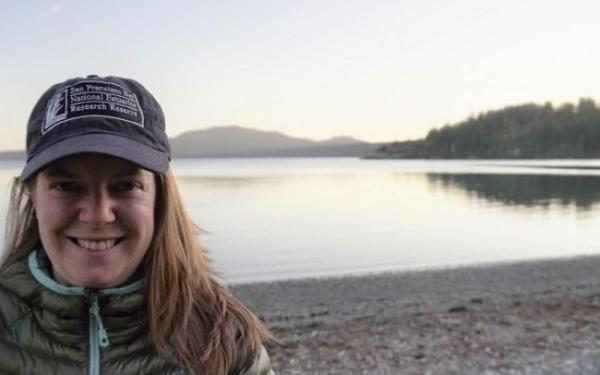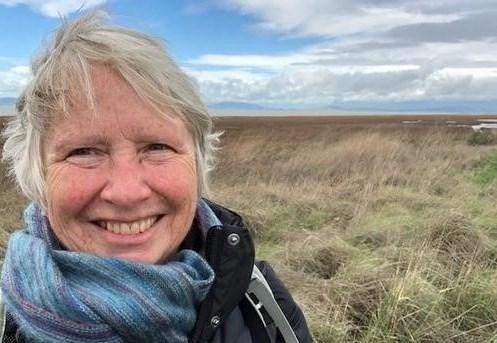Learn how wetland managers across the Bay Area are collaborating to conduct monitoring at a regional scale to save on costs and gain greater understanding of the factors affecting wetland restoration success. Christina Toms of the Regional Water Quality Control Board on June 10, 2025, joined Restoration Project Lead Scientist Donna Ball for a joint presentation on this Bay-wide collaboration, called the Wetland Regional Monitoring Program (WRMP).
- See video of presentation
- See and download Presentation Slides
- See links shared via meeting chat
Speaker Bios:
Christina Toms is an ecological engineer with the San Francisco Bay Regional Water Quality Control Board, where she leads numerous efforts to support the long-term, landscape-scale health and resilience of the region’s aquatic ecosystems, especially estuaries and shorelines. She has over 20 years of experience developing conservation strategies, adaptation and restoration designs, and regional monitoring programs that integrate knowledge across multiple technical disciplines. Since 2017, she has helped lead development of the San Francisco Estuary Wetlands Regional Monitoring Program, and since 2020 has chaired its Technical Advisory Committee.
Donna Ball is a Senior Scientist at San Francisco Estuary Institute (SFEI) and also oversees the science implementation for the South Bay Salt Pond Restoration Project as the project’s Lead Scientist. She has worked on habitat restoration and monitoring projects on the West Coast for the last 20 years. As a member of the SFEI and San Francisco Estuary Partnership team implementing the Wetlands Regional Monitoring Program she serves as co-chair of the WRMP’s Technical Advisory Committee and works with the WRMP’s Lead Scientists to implement the science of the WRMP.
Further Info on Topic:
Effective environmental monitoring of existing and restoring tidal wetlands typically requires long-term collection of numerous biotic and abiotic indicators. It can be challenging for project proponents to synthesize different types of data across technical disciplines, and across spatial scales. Without consistent data describing the regional status and trends of indicators, it can be especially difficult to understand the degree to which observed changes within a wetland are due to site-specific or regional factors. The San Francisco Estuary Wetland Regional Monitoring Program (WRMP) provides the opportunity for projects like the Restoration Project to understand and interpret regional monitoring data, help make decisions about restoration and adaptive management, and offer collaborative opportunities to make individual project monitoring more cost effective. Christina Toms of the Regional Water Quality Control Board also serves as chair of the WRMP’s Technical Advisory Committee. She will share details about the implementation of the WRMP and discuss ongoing monitoring efforts. In the second half of the presentation Donna Ball, Restoration Project Lead Scientist, will describe how the WRMP is complementing and in some instances reducing required monitoring investments by replacing select activities described in the Restoration Project’s Adaptive Management Plan.
Scientific Questions
This research will help the Restoration Project answer several central scientific questions in its Adaptive Management Plan related to topics of Sediment Dynamics, Tidal Marsh Habitat Establishment, and Estuarine Fish.
Future Lunch and Learn Science Presentations
You can check the Events Page for later presentations, to register and find info. Future topics (schedule dependent on agency staffing) include:
- August: Adding sediment to help tidal marshes establish – the Eden Landing Strategic Placement Project (U.S. Army Corps of Engineers, USGS)
- September: Breeding waterbirds in San Francisco Bay (Josh Ackerman, USGS)
- October: Impact of creek and marsh water flows on tidal marsh establishment – Calabazas and San Tomas Aquino creeks modeling (Michael MacWilliams, FlowWest)
Lunch and Learn Science Speaker Series
This presentation is one in a series put forth by the South Bay Salt Pond Restoration Project. The series addresses science and adaptive management done in support of or in collaboration with our Restoration Project as well as relevant outside work. Speakers discuss research, modeling, and monitoring efforts and how Restoration Project managers are using science to inform decisions about restoration, flood risk management, and public access.




